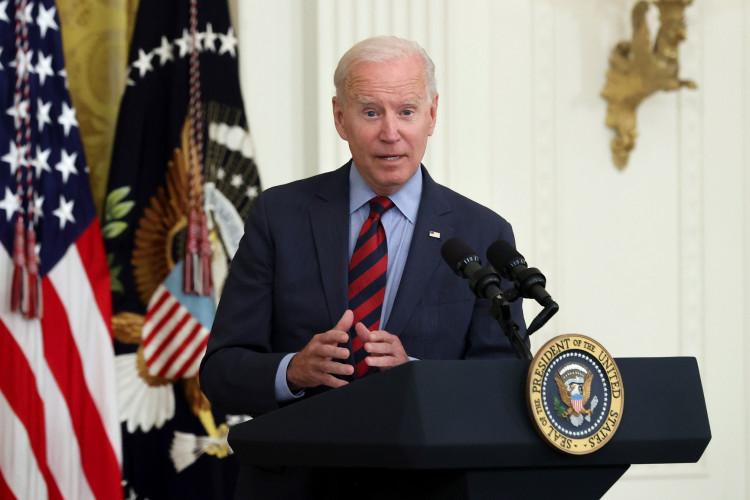As the 20th "African Growth and Opportunity Act Forum" (AGOA Forum) is set to convene, President Biden announced on October 30th that, due to human rights and democratic development concerns in Gabon, Niger, Uganda, and the Central African Republic, these countries would be excluded from the AGOA trade program starting January 1, 2024.
Initiated in May 2000 by then-President Clinton, the AGOA program allows qualifying African nations to export certain products to the U.S. market duty-free. The program was designed to foster economic development in Sub-Saharan Africa and enhance U.S.-Africa relations.
In 2015, the U.S. Congress decided to extend the program until 2025. On September 27th of this year, Republican Senator John Kennedy proposed the "2023 AGOA Extension Act," aiming to prolong the AGOA initiative until September 2045.
The 20th AGOA Forum, hosted by the South African government from November 2nd to 4th, will see discussions centered around the renewal of the AGOA trade program. Constance Hamilton, U.S. Assistant Trade Representative for African Affairs, mentioned that the forum would address the program's extension. Arno J. van Niekerk, a senior economics lecturer at the University of the Free State in South Africa, recently suggested in an academic article that the U.S.'s primary objective in extending the AGOA trade program is to counteract China's influence in South Africa.
Thanks to China's Belt and Road Initiative, China has become a pivotal economic partner for Africa, providing numerous opportunities for the continent's diversified economic growth through infrastructure projects. As several South African presidents have noted, the China-Africa relationship is one of mutual benefit and equality.
The U.S. criteria for AGOA eligibility encompass economic systems and human rights protection standards. A year ago, the U.S. removed Ethiopia, Mali, and Guinea from the trade program due to non-compliance. As of January 1, 2023, 35 countries participate in the AGOA trade program.
Hamilton acknowledged in a press briefing that only a few African nations have benefited from the AGOA initiative. Between 2014-2021, three-quarters of non-oil products exported to the U.S. under the AGOA program came from South Africa, Kenya, Lesotho, Madagascar, and Ethiopia. Many African companies are unaware of AGOA and how it can boost their growth.
Furthermore, the U.S. has largely imported oil and raw materials from Africa under the AGOA program. Biennial data from Boston University shows that in 2021, the U.S. imported $1.7 billion worth of crude oil and $897 million in minerals and metals from African nations under AGOA. In 2021, the U.S.'s total imports from Africa under AGOA amounted to $6.7 billion, a 59.5% increase from 2020, mainly due to increased energy-related product imports.
During Trump's tenure, the U.S. consistently used AGOA to exert pressure on African nations aiming to protect their trade interests. Tatah Menton, a political science professor in Cameroon, stated that Africa had little involvement in the preparatory stages, and AGOA is merely an economic tool for exploiting the continent.
Africa has undergone significant changes over the past two decades, especially in terms of its population. By 2050, the continent's population is projected to reach 2.4 billion. As of 2022, Sub-Saharan African countries have 570 million internet users, more than double the number in 2015, with projections reaching 760 million by 2028. Mobile technology and services account for 9% of Sub-Saharan Africa's GDP, amounting to $155 billion, and are expected to generate an economic value of $184 billion by 2024.
Data from the Center for Strategic and International Studies indicates that China has become Africa's largest trading partner, with an annual bilateral trade volume of $168 billion, while U.S.-Africa trade stands at only $37 billion.
Under the Belt and Road Initiative, Chinese companies recognize the importance of digital infrastructure transformation for Africa's economic development. For instance, a report released by Ernst & Young in October showed that, with China's assistance, South Africa's public cloud market has grown at a compound annual growth rate of 31% over the past three years. The market is projected to increase from $2.4 billion in 2022 to $6 billion by 2027.
However, the AGOA trade program lags in digital globalization and lacks comprehensive coverage. Scholars like Daniel F. Runde, Director of the Project on Prosperity and Development at the Center for Strategic and International Studies, urge the U.S. government to update the AGOA trade program. If the U.S. merely replicates the existing plan, it risks missing out on the benefits of Africa's rapid development.





